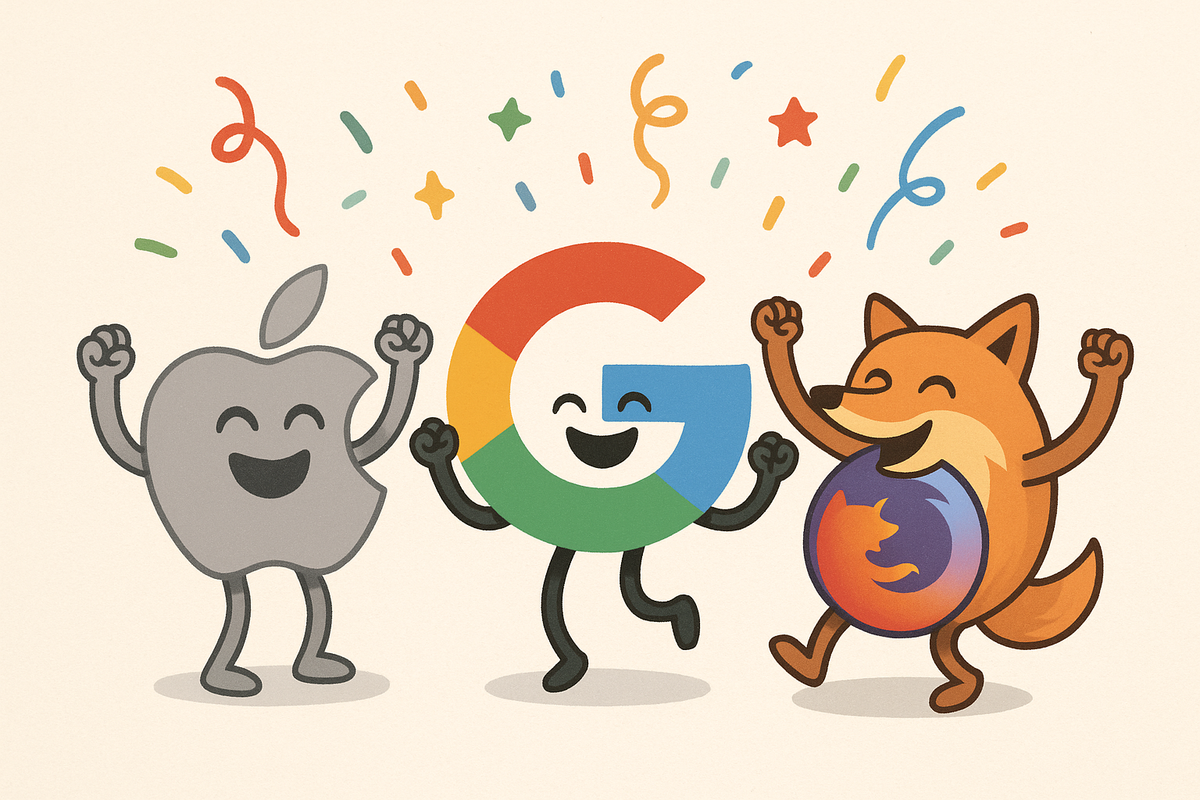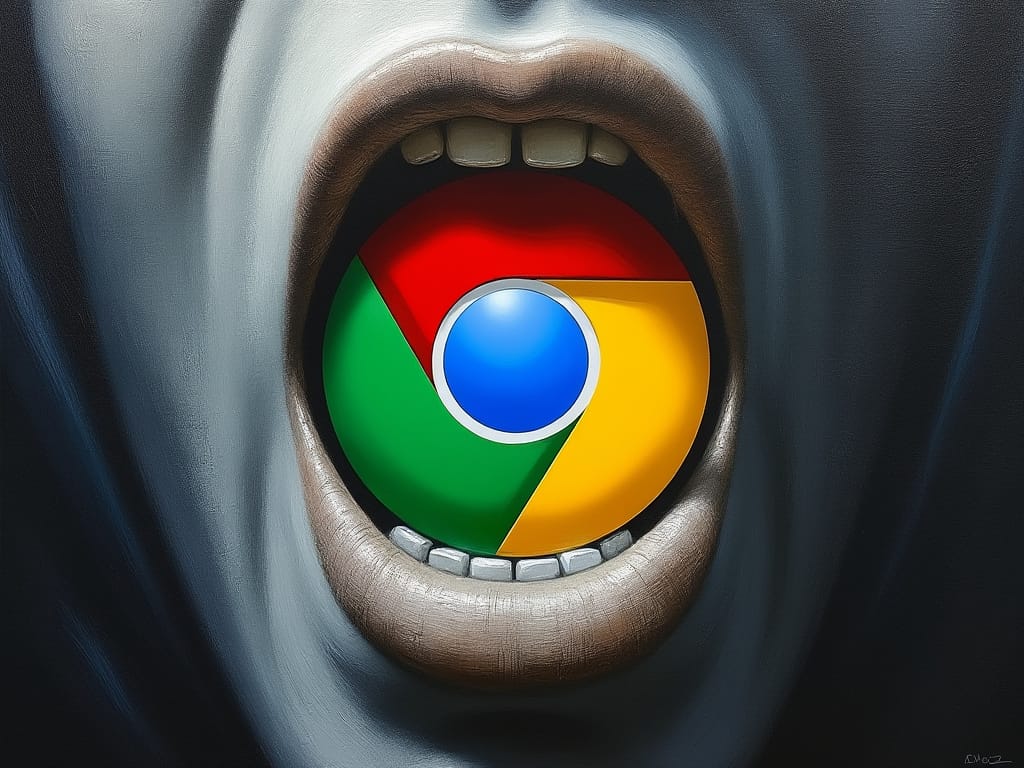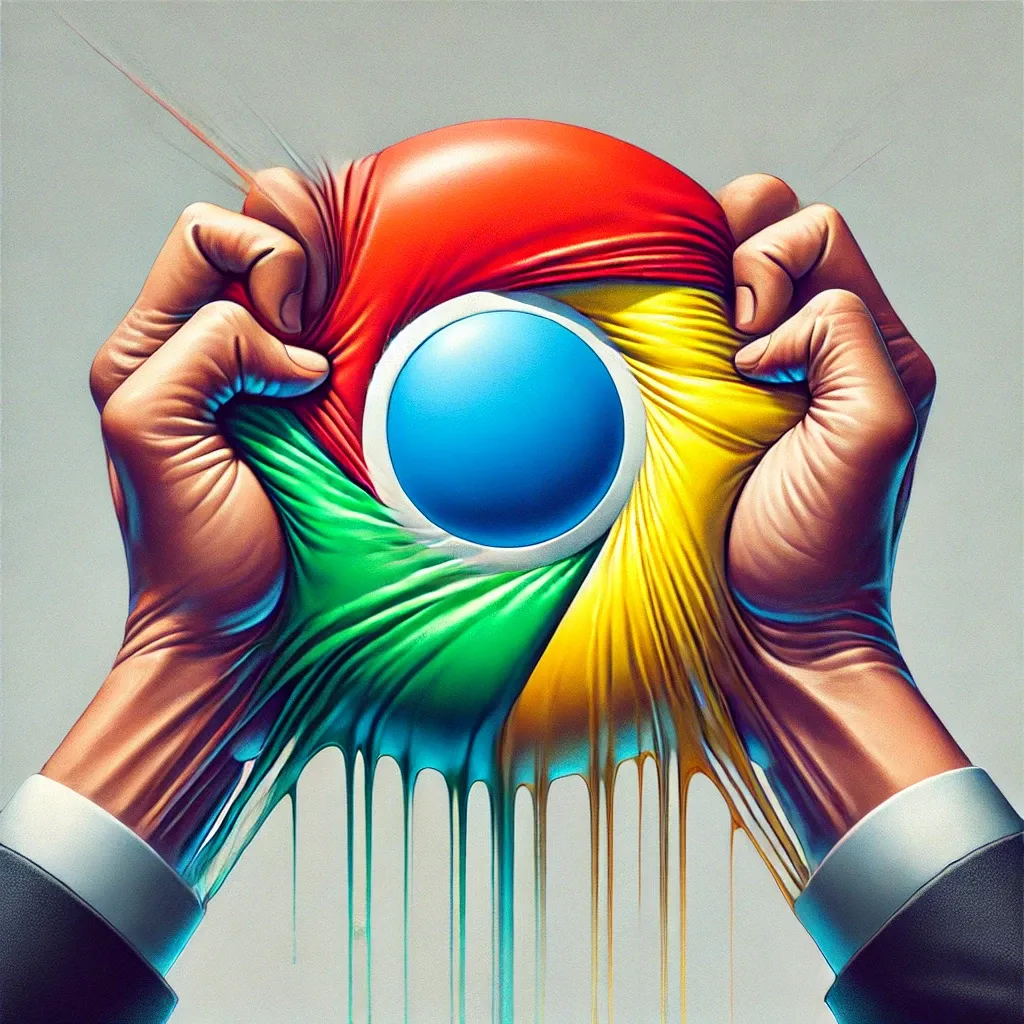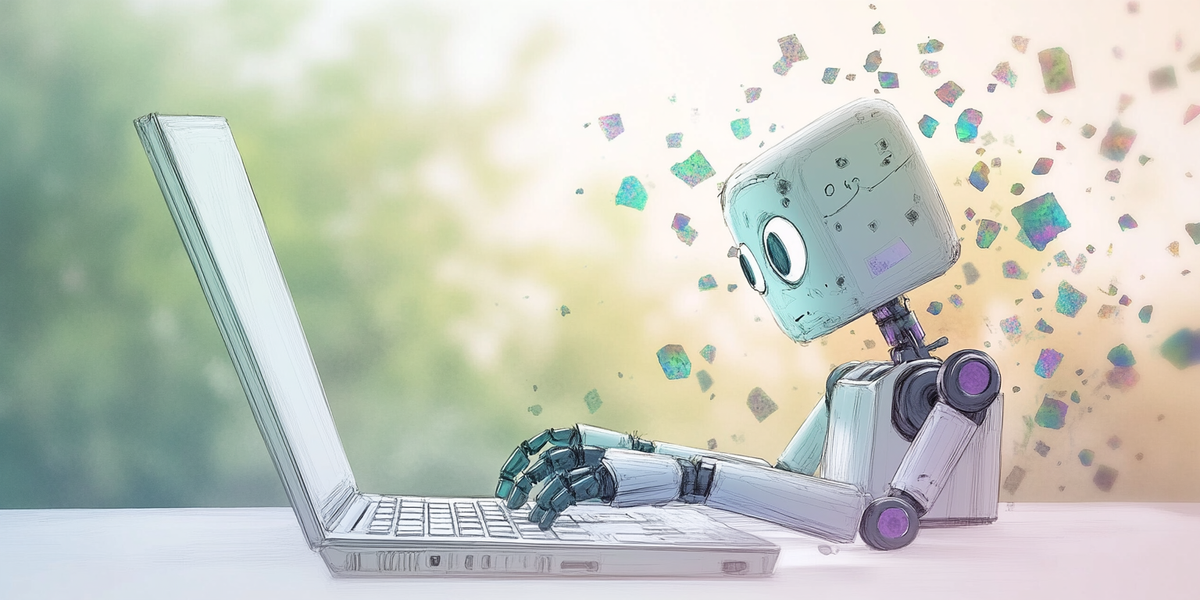OpenAI Open to the Idea of Buying a Browser with a Few Billion Users

Here's perhaps the least shocking news to come out of Google's antitrust remedy trial, but still makes for a good headline: 'OpenAI Would Buy Google’s Chrome Browser, ChatGPT Chief Says'. As Leah Nylen, Shirin Ghaffary, and Davey Alba relay today:
OpenAI would be interested in buying Google’s Chrome browser if a federal court orders it to be spun off, the head of ChatGPT said in a court hearing Tuesday.
“Yes, we would, as would many other parties,” Nick Turley, OpenAI’s ChatGPT chief said in response to a question about whether the company would seek to buy Google’s browser.
Yes, that's right, OpenAI would be open to buying a product with a few billion active users. And probably the iPhone business from Apple too. Google Search perhaps? Why not! Very magnanimous of them.
Of course, none of these businesses are for sale. Though the Justice Department would sure like Chrome to be, which is exactly why they summoned Turley to the stand. And Turley said exactly what they were hoping he would say. Because there seems to be confusion right now as to whether or not Google selling off Chrome would make any sense as a remedy here – including, notably, from the judge in this case, Amit Mehta.
Make no mistake, per Turley's point, a lot of entities would buy Chrome. That's not the question. The question is whether or not it would actual solve for what the law is trying to solve for here: the Google Search monopoly. As I wrote back in November when this notion was first put out there as a potential remedy:1
The government would argue that consumers will benefit as they'll no longer be as locked into Google Search – especially if this is coupled with an order to end any default search agreements with other browser makers. But unless those other browser makers choose another search engine as the default, it feels like Google Search will not be impacted very much. It is interesting to think if that would impact the uptake and growth of Gemini and a few other Google products, such as their payment services, but that's not what is on trial here.
It's not clear who could pay what for Chrome. Bloomberg throws out the notion of OpenAI being one potential home, but would the government really want that? That would risk anointing – well, really entrenching – a king in a new field. OpenAI's main benefactor, Microsoft could acquire it, especially now that their own Edge browser is all-in on Chromium. But they would probably just use it to bolster not just Bing but also their own AI products and services. And that would be extremely awkward for the government as well.
So yes, OpenAI is one idea that could potentially put a dent into Google Search. Because it's already naturally happening even without ChatGPT being a default in Chrome. And this would hand the service roughly 3.5 billion users overnight.2 That's not going to happen.3 Beyond the fears of the law playing kingmaker, there's the pesky problem of a price. How much is Chrome worth? Google would probably argue for something in the range of hundreds of billions of dollars given all of those active users. OpenAI would have to raise another round.
Back to Nylen, Ghaffary, and Alba:
Currently, OpenAI’s chatbot, ChatGPT, has an extension in Google’s Chrome browser available for users to download. But having Chrome be more deeply integrated into OpenAI would allow for a better product, Turley said.
“You could offer a really incredible experience” if ChatGPT was integrated into Chrome, he said. We would “have the ability to introduce users into what an AI first experience looks like.”
Could you really though? I mean, sure, it would be better than what you could do with an extension, but you'd also have all the legacy cruft that Chrome has built up over the years. A lot of technology mainly in there to help Google do Google things, not to help do OpenAI do OpenAI things. It would be better to build a browser from the ground up for ChatGPT.
As I wrote a few days after the post above, in a post entitled, Forget the Fate of Chrome, Focus on the Fate of the Browser:
And with that in mind, I do think it makes sense for OpenAI to have a browser. They shouldn't buy Chrome, nor should they be allowed to for all the reasons discussed. But they should do what Google did back in the day and build it from the ground up to tailor it for their own vision of the future of the internet – complete with a new "Omnibox" that is truly "omni". And so the reports (and hires) suggesting that they're working on such a browser makes sense, of course.
Now, you might argue that their resources are better spent working on what's next after a web browser. And yes, they should be doing that too – and seemingly are. But an OpenAI web browser product right now reminds me not of Chrome, but of Google's old toolbar for Internet Explorer back in the day. One of the early projects which, much like Chrome itself, was led by none other than... current Google CEO Sundar Pichai. This was their way to get a toehold in the market at the time. And it worked.
You might say that the ChatGPT Chrome extension – pretty aggressively installed and implemented alongside the new Search product – is OpenAI's version of this. And it may be. But I think a re-imagined browser tailored around ChatGPT would be better placed to gain a toehold within our current tech environment. Until we get to the AI wearable product or whatever is actually next.
Buying Chrome wouldn't be about this. It would be about distribution, pure and simple. And that's exactly what Turley testified was one of OpenAI's biggest challenges right now. So yes, they'd happily buy Chrome! Because they're beholden to the phone and PC makers for that distribution until they can invent that next magical device. Which again, is why they should build a browser. A case I made yet again in January after trying out OpenAI's 'Operator' agent:4
Imagine a new web browser where interaction with various AI agents is the primary input – including ones for browsing the web, of course. It still has a lot of the stuff you know and need, but adds other elements specific to AI, and removes a lot of cruft that is no longer needed. It's a browser you can use, but it's built just as much with your 'Operator' in mind. And it doesn't even necessarily need a screen to operate. That's how you break Chrome's dominance. And perhaps Google's.
We've been hearing the 'build vs. buy' debate a lot the past few weeks in the context of these antitrust trials. Not just with Google, but with Meta too. They opted to buy Instagram and WhatsApp, but couldn't buy Snap, so they effectively built Instagram into their own version of it. With OpenAI here, as much as the government would like us to believe they could buy Chrome, it's just not happening. Nor should it. Instead, OpenAI should build their own version.5
Back to my conclusion in November:
Go back to that first point: a web browser remains the most-used and thus, most important piece of software for nearly everyone on the planet.
One more thing: Speaking of distribution, OpenAI obviously has their deal in place with Apple – which Apple should probably be pushing a lot harder. But perhaps one reason why they're not right now, despite their own internal AI fiasco, is because there may actually be a financial arrangement in place after all. As Erin Woo relayed from the Turley comments at the trial today for The Information:
On the witness stand on Tuesday, Turley said OpenAI made its technology available to Apple to “power iOS features.” The integration operates “as an overflow,” Turley said: if the iPhone’s Siri assistant can’t answer a question someone asks by itself, it refers the question to ChatGPT.
Asked by the judge overseeing the case, Amit Mehta, how the integration worked financially, Turley said “at a high level, we offer a share of our revenue.”
OpenAI had expected the integration would give ChatGPT increased exposure to consumers, helping it sell more paid subscriptions to its ChatGPT.
That reads like perhaps OpenAI is sharing a cut of the revenue they earn when people upgrade to ChatGPT Pro accounts, rather than just from standard usage. Still, if Apple really did go all-in with ChatGPT, you'd imagine there would have to be some sort of new, massive deal.
Update September 2, 2025: The remedies are in and Chrome will not be for sale, it seems...




1 Which I had guessed would be coming as a potential option back in October.
2 Assuming OpenAI was allowed to make ChatGPT the default in their newly-owned browser!
3 And if this were proposed to Google, one also imagines their response would be something like, "literally anyone but them."
4 A product which, incidentally, runs on a custom version of what else, Chrome!
5 They could even use Chromium! Well, provided the government didn't force Google to sell Chrome and thus putting that project in peril too.




